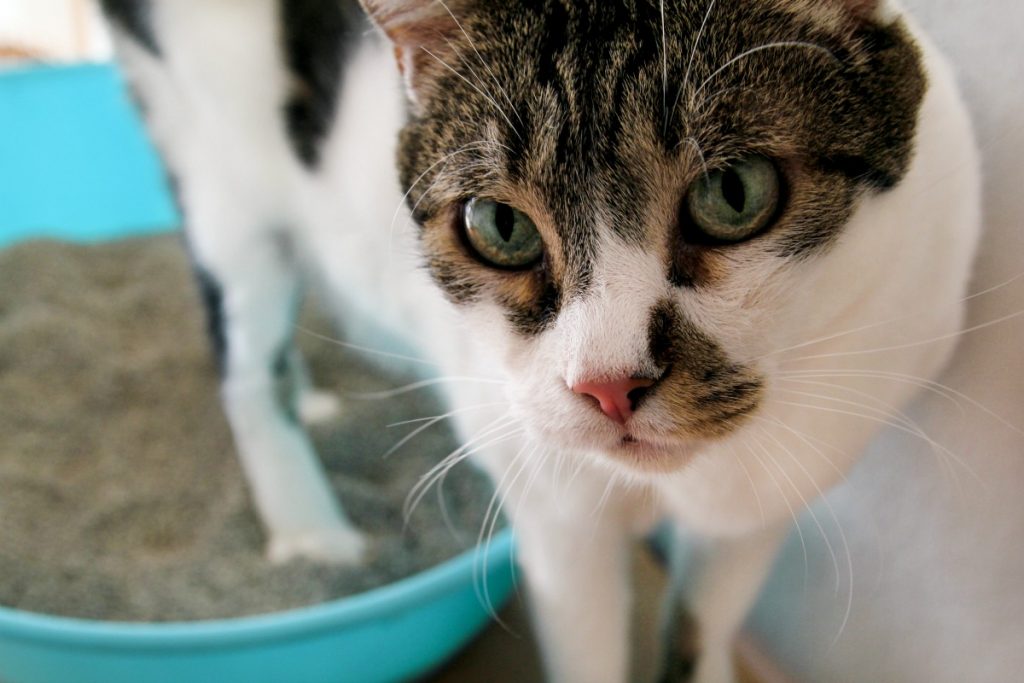There are many different reasons why your senior cat may be urinating outside of the litter box. It can be due to medical reasons, environmental conditions, and behavioural issues.
The first place to start is to take your senior feline friend for an exam at your veterinary hospital. They should be ideally, seen twice a year, as so much can change in six months. Early detection of disease is crucial to help give your fur baby a long and happy life.
Medical reasons can be a contributing factor and may consist of arthritis, kidney disease, diabetes, urinary tract infections, and hyperthyroidism. Hyperthyroidism is caused by overactivity of the thyroid gland, resulting in a rapid heartbeat and an increased rate of metabolism, which in turn, leads to severe weight loss, even though your cat will be constantly hungry and wanting to eat.
Environmental conditions would include the height of the litter box, location, type of litter and cleanliness. Stressors such an introduction of a new pet or a move can be enough to trigger behavioural issues.
With kidney disease, diabetes, urinary tract infections and hyperthyroidism, cats drink more and then urinate more. That can cause them not to be able to make it to the litter box in time and urinate wherever they are, whether it is in your bed or on the floor.
Seniors cats need a low-sided litter box as 90% of cats over the age of 12 show signs of joint pain and inflammation, due to arthritis. Your veterinarian may prescribe an anti-inflammatory to help with the pain if your cat is healthy otherwise. A hip and joint supplement for any senior cat would help. Location is also a huge factor. For example, if a noisy furnace places your litter box, it may scare your cat away from using the litter box. If it is located in a dark place such as a basement, ageing cats may not be able to see as well. This makes it challenging for them to go down and relieve themselves. A litter box placed on all levels of the house to make it easily accessible will assist those cats who are uncomfortable getting up and down the stairs. The type of litter also makes a difference. If you change the litter type, some cats have litter aversion, which means they refuse to use it. Cleanliness of the box is huge for cats, as they are very clean creatures. Make sure to scoop daily and have a litter box for each cat, plus one extra in the household. The extra box is the rule of thumb to keep everyone happy.
Diabetes and hyperthyroidism can be treated with medications and diet, and the progression of kidney disease can be slowed down by the use of veterinary prescribed medications and diet.
Stress is also a contributing factor for senior cats urinating outside of the litter box. Oftentimes, a new kitten or puppy is introduced to the household. Feline pheromone sprays and supplements are available to help ease the transition, as well as taking the introduction slowly. Let your senior cat decide how much interaction they would want with the new family member.
There is always some reason why your senior cat, or any age of cat really, is urinating outside the litter box. It may take a bit of detective work, but usually, you can find out what the underlying cause is with the help of your veterinary team.
Written by Jen Welshman, RVT




